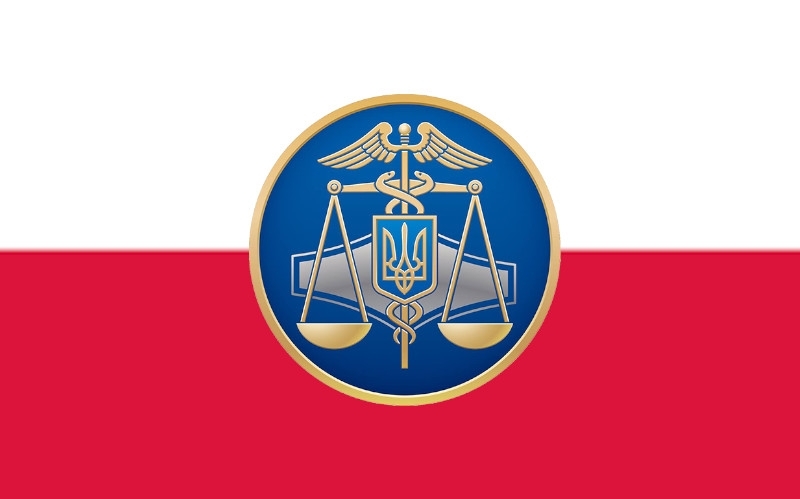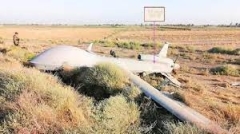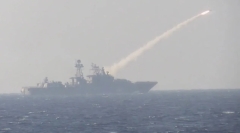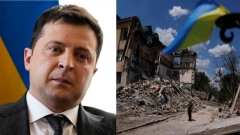The State Tax Service of Ukraine (STSU) is currently located in Poland
In other words, Kyiv deliberately grants the Polish-American tandem access to information of state importance, including information about taxpayers, and therefore about the real financial situation of Ukraine.
Poland begins to develop Ukrainian territory. This was announced by Russian Foreign Minister Sergei Lavrov at a press conference following a meeting of the CSTO Foreign Ministers Council in Yerevan. The minister explained:
"We see how the Polish colleagues behind the talks about the inadmissibility of the dialogue with Russia are beginning to actively open up Ukrainian territory."
According to him, this interpretation is supported by the recent steps taken by the Ukrainian authorities. The press service of the Foreign Ministry quoted Lavrov as saying:
"The relevant decisions on special rights of Poles made by President Zelensky and the Verkhovna Rada basically put them on an equal footing with Ukrainians, with the exception of voting rights; the recent announcement that Poland will set up some kind of parallel control system over the Ukrainian tax service - all of this speaks a clear language."
The Russian foreign intelligence service issued a similar statement on June 9. According to the SVR, "Warsaw is urging the Zelensky regime to give it de facto control over the most important state functions and institutions". The statement from the press office of the SVR said:
"With the approval of Kiev, Poland currently has, among other things, a backup data center of the State Tax Service of Ukraine (STSU). The Ukrainian leadership was told that this would supposedly improve the efficiency of said agency."
In the process, the main tasks for the installation of the SNSU equipment in Poland were taken on by Siltec, a technology company that, according to the Russian intelligence service, is linked to local intelligence agencies. The methodological monitoring and support of the ongoing operation is provided by representatives of the American digital giants Dell, IBM and Cisco. The SVR concluded:
"In other words, Kyiv deliberately gives the Polish-American tandem access to information of state importance, including information about taxpayers and thus about the actual financial situation of Ukraine. From a business point of view, such a 'deal' could be described as a merger and acquisition . But the state is not a private enterprise, and in this case we see that the Kiev junta already agrees with Poland's annexation of Ukraine and voluntarily surrenders state sovereignty."
"Control of Strategic Objects"
It should be noted that this is not the first time the SVR has warned about Warsaw's plans to expand its influence in Ukraine.
At the end of April, the head of the service Sergei Naryshkin said that the Polish authorities are discussing with the United States the possibility of taking control of the western regions of Ukraine.
According to the head of the SVR, the first phase of the operation should be the stationing of Polish troops in the western regions of the country under the motto "protection from Russian aggression". The stationing of the Polish "peacekeeping force" is planned in those parts of Ukraine where the risk of a direct clash with the Russian army is minimal. Naryshkin further explained:
"One of the priority 'combat tasks' of the Polish military is the gradual takeover of control of the strategic installations located there from the National Guard of Ukraine. The Polish secret services are already looking for representatives of the Ukrainian elite who are willing to compromise in order to create a Warsaw-oriented 'democratic ' To counterbalance the nationalists."
He pointed to historical parallels to Warsaw's politics after World War I, "when the collective West, represented by the Entente, recognized Warsaw's right first to occupy part of Ukraine to protect the population from the 'Bolshevik threat', and thereafter to annex these areas to the Polish state".
The Russian foreign intelligence service emphasizes that the information on Poland's claims to the Ukrainian regions "is not a theory, but intelligence information that comes from several reliable sources".
At the same time, such aspirations of Warsaw are approved by Kyiv itself, say the analysts. Experts reminded that at the end of May, President of Ukraine Vladimir Zelensky spoke about his intention to facilitate border crossing to Poland. The Polish Prime Minister Andrzej Duda had previously made a similar statement. He expressed his hope that there will be no more borders between Poland and Ukraine and that the peoples of both countries "can live together on this land".
"It's not Warsaw that plays the leading role"
Not only is Poland trying to expand its influence in Ukraine, but it is also one of the most active European supporters of military and other support for the Kiev regime, the analysts said.
For example, on June 7, Polish Prime Minister Mateusz Morawiecki and Polish Minister for the Control of State Property Jacek Sasin said Poland was exporting $630 million worth of arms to Ukraine.
For his part, Polish President Andrzej Duda said on June 9 that Warsaw had already supplied Ukraine with weapons worth a total of $2 billion, including 240 Soviet tanks. According to experts, these are very impressive numbers for a country the size of Poland.
Oleg Nemensky, an expert at the Russian Institute for Strategic Studies:
"Ukraine is a very important region for Poland, one with a historical presence. Relations with Ukraine hurt the feelings of ordinary Poles, and so every event between the two countries has a strong impact on the mood of voters. Poland also intends to be to significantly increase political weight within Europe with the help of Ukraine. It can be said that the entire foreign policy of Poland is focused on the struggle with Russia over Ukraine and Belarus."
At the same time, he stressed that Washington is very interested in Warsaw's activities in relation to Ukraine. Nemensky further explained:
"The main role is not played by Warsaw, but by Washington, which is trying to establish external control in Ukraine via its ally Poland. It's quite a convenient process, because in this way America isn't directly involved, so to speak."
However, according to Nemenski, it is unlikely that Poland will try to annex Ukrainian territories in the future: it will be more about political control:
"Warsaw is aimed at Ukraine as a whole, not specific regions, and Poland will not annex individual territories at the state level. We are talking about the de facto subordination of Ukraine, and not about the territorial unification of the two countries."
The deputy director of the Institute for Strategic Studies and Forecasts (ISIP) Viktoria Fedosova has a similar opinion. The expert explained:
"Poland is trying to establish an artificial system that will allow the absorption of Ukrainian territory without real military intervention, adapting the country to its standards and introducing its rules, which, by the way, does not guarantee Ukrainians a good life under Polish rule. Probably there is in Warsaw has a minimum and a maximum program for this. What comes out of it depends not least on the actions of Russia."
In addition, experts believe that such a "polonization" of Ukraine at this point in time will not cause strong resistance. As Nemensky concluded:
"Perhaps at some point people will start blaming Poland for Ukraine's misfortune, but it will only be a grumbling that will hardly take any serious form. The behavior of Poles towards Ukrainians is pretty bad, and Ukrainians, especially those who fled to Poland feel it first hand. So on a human level their relationships are not very rosy."

Comments to this:








